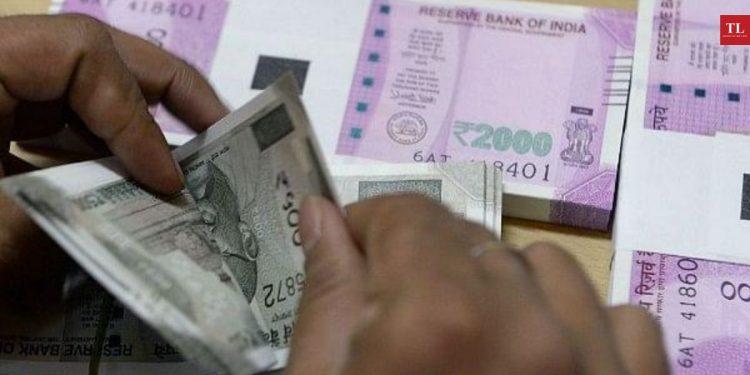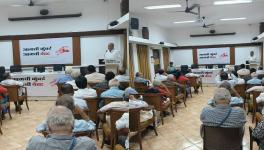Privatising Banks, Diminishing Rights: Does a Receding State Mean Receding Banking Services for the Poor?

Analysing the recent steps around privatisation of public sector banks in India from a socio-legal perspective, TANVI APTE and ANKUSH RAI argue that such privatisation will not augur well for flagship government schemes such as the Pradhan Mantri Jan Dhan Yojana, which will in turn lead to diminishing of rights and decreased financial inclusion for those worst affected by the pandemic.
—-
It has been around a year and a half since the COVID-19 pandemic has wreaked havoc around the world. India has also not been spared of the pandemic’s wrath. Over the last few months, there has been significant discussion on how the Indian economy has been affected by the pandemic, including issues like a negative growth rate, rising unemployment, and increasing non-performing assets, with few optimistic voices of recovery speckled in between.
Against this backdrop, the Union Budget for financial year 2021-22 was naturally awaited with much anticipation. The months leading up to the Budget speech involved extensive debate on what the government should and should not do in such a situation. Later, after Union Finance Minister Nirmala Sitharaman’s Budget speech in Parliament, the debate has continued – some have praised the budget, while others have come down heavily against it.
Also read: Union Budget Pushes for a Full-Scale Power Shift with a Hefty Cost
Privatization of public sector banks announced in Budget speech
The budget contained several aspects that have invoked conflicting opinions. One such aspect is the question of privatisation – more specifically, the privatisation of public sector banks (PSBs). Sitharaman caused ripples in the banking sector by announcing the government’s intention to privatise two PSBs as part of its drive to raise funds and bridge its fiscal deficit. This announcement came amidst the government’s repeated emphasis on PSBs’ bad loans and the role of the private sector in driving economic development. Subsequently, the government has been racing ahead with this privatisation plan: it has shortlisted four banks out of which two will be privatised, and has also started making the selected banks’ health look good in order to attract buyers.
However, not everyone is happy. The Government’s moves have been met with massive opposition from bank employees’ unions. Recently, around 10 lakh bank employees went on a massive two-day strike in protest, and more such protests are expected.
In response, Sitharaman has attempted to allay fears by mentioning that “salaries or scale or pension of employees, all will be taken care of.”
Unfortunately, Sitharaman’s statements suggest that the government is viewing the protests against privatisation as a mere employee concern, whereas in reality it is a people concern. The question that she must confront is: what does bank privatisation really mean for the public at large, that too during a pandemic?
Also read: Government Plan to Privatise Public Sector Undertakings may just help Corporates get Richer
The ‘public’ function of public sector banks
Interestingly, India has traditionally enjoyed a heavy public sector presence in the banking sector. Indian PSBs have long been seen as vehicles for ensuring welfare by providing growth opportunities and financial inclusion to the poor and vulnerable sections of society, who incidentally happen to be the ones hit hardest by the pandemic.
Our courts’ jurisprudence regarding amenability to its writ jurisdiction also helps support this proposition. This jurisprudence suggests that entities controlled by the government, which perform functions of public nature, are amenable to writ jurisdiction. As per this legal position, PSBs are owned and controlled by the state, and also perform public functions which have the potential to affect the fundamental rights. Therefore, the applicability of writ jurisprudence to them underscores their public importance.
PSBs’ performance of this public function is reflected in several ways:
Firstly, they are the main players involved in implementing the Pradhan Mantri Jan Dhan Yojna (PMJDY), the government’s flagship scheme, which encourages financial inclusion by permitting persons to open a bank account with zero minimum balance.
The mere creation of such a bank account brings with it several benefits. For instance, Jan Dhan account holders can avail of several insurance and overdraft facilities on beneficial terms. An account holder who is a migrant worker can also use the account to send the money to their family back home, actualising their right to livelihood.
Further, Jan Dhan accounts are used as a means to identify beneficiaries of various welfare schemes and directly transfer the benefits to their accounts. For instance, an August 2018 Press Information Bureau Release marking the sixth Jan Dhan anniversary notes, “About 8 crore PMJDY account holders receive Direct Benefit Transfer (DBT) from the Government under various schemes… (There are) 63.6% Rural PMJDY accounts; 55.2% Women PMJDY accounts…Under PM Garib Kalyan Yojana, a total of Rs. 30,705 crore have been credited in accounts of women PMJDY account holders during April-June, 2020.” In fact, during the pandemic, Jan Dhan accounts have increased by over 60%, further evidencing the value of the scheme. In this manner, the PMJDY’s intrinsic and instrumental benefits are amply clear.
Also read: Will Bank Privatisation Roll Back India’s Development Agenda?
Secondly, in addition to the PMJDY, PSBs also help allocate scarce capital to medium, small and micro enterprises (MSMEs) and cottage industries on favourable terms. In fact, during the pandemic, PSBs have been taking the lead in ensuring that MSMEs stay afloat by disbursing over two-thirds of the loans under the government’s credit guarantee scheme. Overall, PSBs enjoy the trust of the vulnerable sections of society, and aid their welfare.
This poses a pertinent set of questions: what will happen to these banks’ public welfare related activities post privatisation? Will the newly privatised bank still provide such services? Is there any guarantee to that effect?
Private Banks won’t provide beneficial services to the poor
There are no easy answers. Post privatisation, the government cannot compel recently privatised banks to continue to provide beneficial services to the poor, since that would constitute an interference with their right to do business freely.
Indeed, the judicial stance on the accountability of private banks also supports this conclusion. Post the Supreme Court’s judgment in the case of Federal Bank Ltd. vs. Sagar Thomas & Ors., (2003) 10 SCC 733, the higher judiciary has generally treated private banks as entities that are not amenable to its writ jurisdiction for enforcement of fundamental rights. Though there has been some judicial pushback to this position in recent times, it cannot really be seen as altering an established position of law. Therefore, there is seemingly no way to compel newly privatised banks to continue to provide beneficial services to the poor.
However, it is imperative to ensure that these services are not suspended or made onerous as a consequence of privatisation. If that happens, it will be another blow to those that have suffered the most during the pandemic, and further hit their right to life and livelihood. For instance, the newly privatised banks may discontinue the PMJDY’s minimum balance requirement, which spells trouble.
Traditionally, private banks have been near absent in implementing the PMJDY, which also does not bode well for any potential future beneficiaries. Similar concerns hold true with regard to finance terms for MSMEs and cottage industries. In this manner, the discontinuation of public welfare services in the newly privatised banks will fly in the face of the Government’s much publicised objective of real financial inclusion and economic development.
Overall, it is clear that any decision to privatise banks has to take into account these concerns. It is important that the Government views the protests against the privatisation as going beyond mere employee concerns and sees them as concerns affecting the public at large – especially the ones most affected by the pandemic. A holistic consideration of these concerns will lead to a more equitable reforms process.
(Ankush Rai and Tanvi Apte are fourth year students at NALSAR University of Law, Hyderabad. The views expressed are personal.)
Get the latest reports & analysis with people's perspective on Protests, movements & deep analytical videos, discussions of the current affairs in your Telegram app. Subscribe to NewsClick's Telegram channel & get Real-Time updates on stories, as they get published on our website.
























